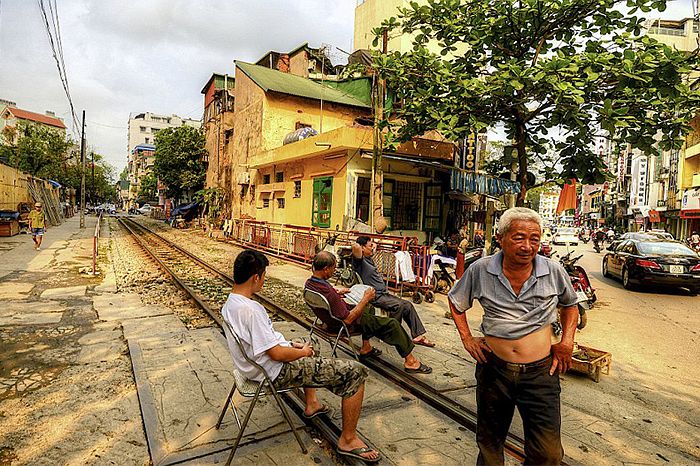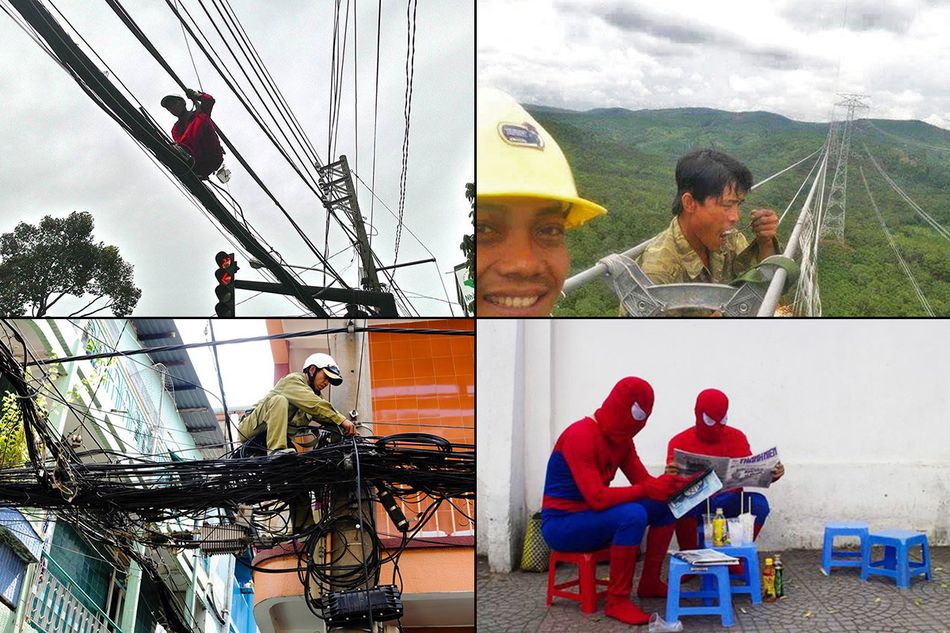You'll be hard-pressed to find a straight, orderly line in Vietnam. Sure, there are some rare places – the bank or perhaps the immigration counter at the airport – where you might find people queuing in neat rows, but by and large Vietnam tends not to buy into the act of lining up for coffee, movie snacks, train tickets or most other goods and services.
While this can be frustrating at times, Harvard doctoral student Vu Thanh Chau has an interesting explanation for the phenomenon. In Uspire, the United World Colleges (UWC) Vietnam-focused online magazine, the Phan Rang native breaks down the trouble with assuming that Vietnam's lack of queues is a cultural thing:
“Not standing in line, littering, cheating in school, talking loudly on buses or not respecting traffic laws...[occurs] so often that in the views of many, they are an inseparable part of the Vietnamese culture,” Chau writes.
“However, victimizing a culture is always easier than trying to understand the roots of the problem,” he continues. “Furthermore, accepting that such behaviors are a part of our culture is dangerous, for it prevents us from thinking of how to change ourselves for the better.”
The aversion to queuing, according to Chau, has to do with a game theory called the “Prisoner's Dilemma”. The Harvard student explains it best:
“The Prisoner’s Dilemma is a thought-experiment in Mathematics in which two captured prisoners have to independently choose to either remain silent or confess to the crime. The offer made by the police to the two prisoners is: if they both confess, each serves two years in prison. If they both remain silent, each serves only one year. However, if one remains silent, only to be betrayed by the other who confesses, then the one who confesses goes free while the silent prisoner has to serve three years in prison.”
Video via YouTube user Khan Academy.
When applied to the act of lining up, Chau argues, this phenomenon means that even though the best collective decision is to follow the rules and queue in a straight line, most individuals will take the course of action which offers the greatest benefit to themselves and not necessarily the rest of the group. Furthermore, if one person skips the queue and it pays off, others will then see this person benefit from cutting and so do the same.
“What is interesting is that, without mutual trust, even before anyone actually skips the line, just by anticipating that someone will, no one would respect the queue,” writes Chau.
So how do we alter these behaviors? Chau argues that change starts with a few people obeying the rules first, even though it does not immediately benefit their interests, therefore encouraging those around them to follow suit. He writes:
“Without getting too involved in the details of game theory, my natural instincts require that some of us must pioneer in choosing the nicer course of action, i.e. line up, not cheat, respect traffic laws, etc. This decision necessarily makes one worse off in the short-run, as this action will be taken advantage of by others. However, in the long-run, by playing nice, one can signal to the public that they, too, can safely line up and enjoy the best social outcome together. In other words, unless you start respecting the rules, you cannot expect others to do the same, and changes must start from you adjusting your own course of actions. Trust, the key to reverse the situation, starts from individuals like us.”
Who knows if your own personal decision to queue will make a difference, but it's certainly something to think about next time you're waiting in line.
[Photo via Abay.vn]














